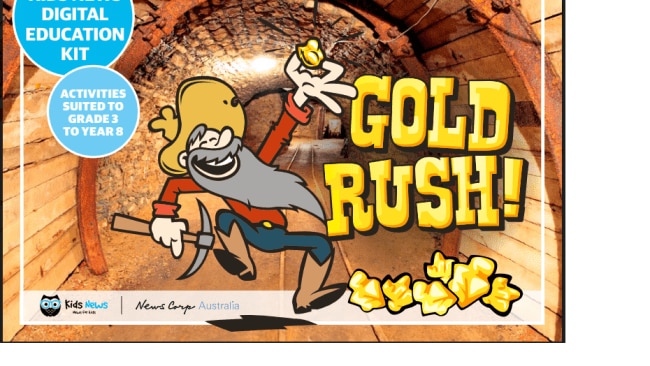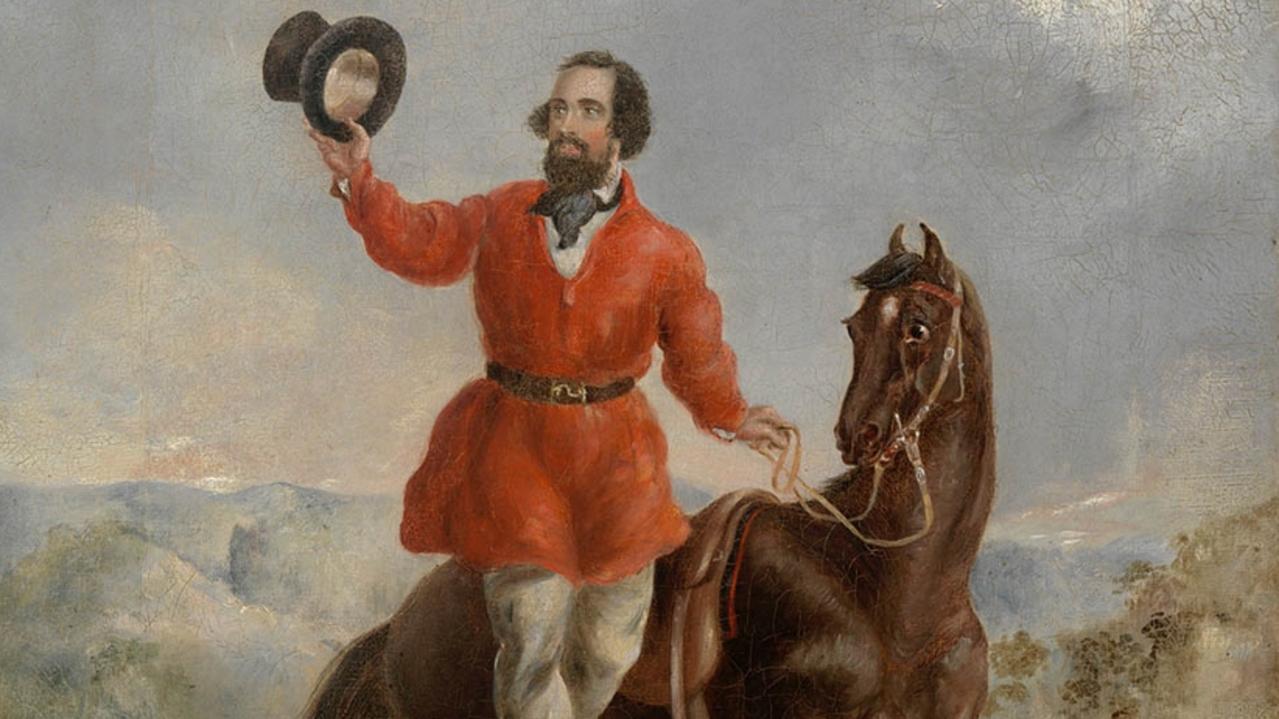The lead up to the Eureka Stockade was a time of growing unrest on the goldfields
EUREKA STOCKADE: Miners were so unhappy with how they were being treated by the government and police they began to organise themselves for a big battle
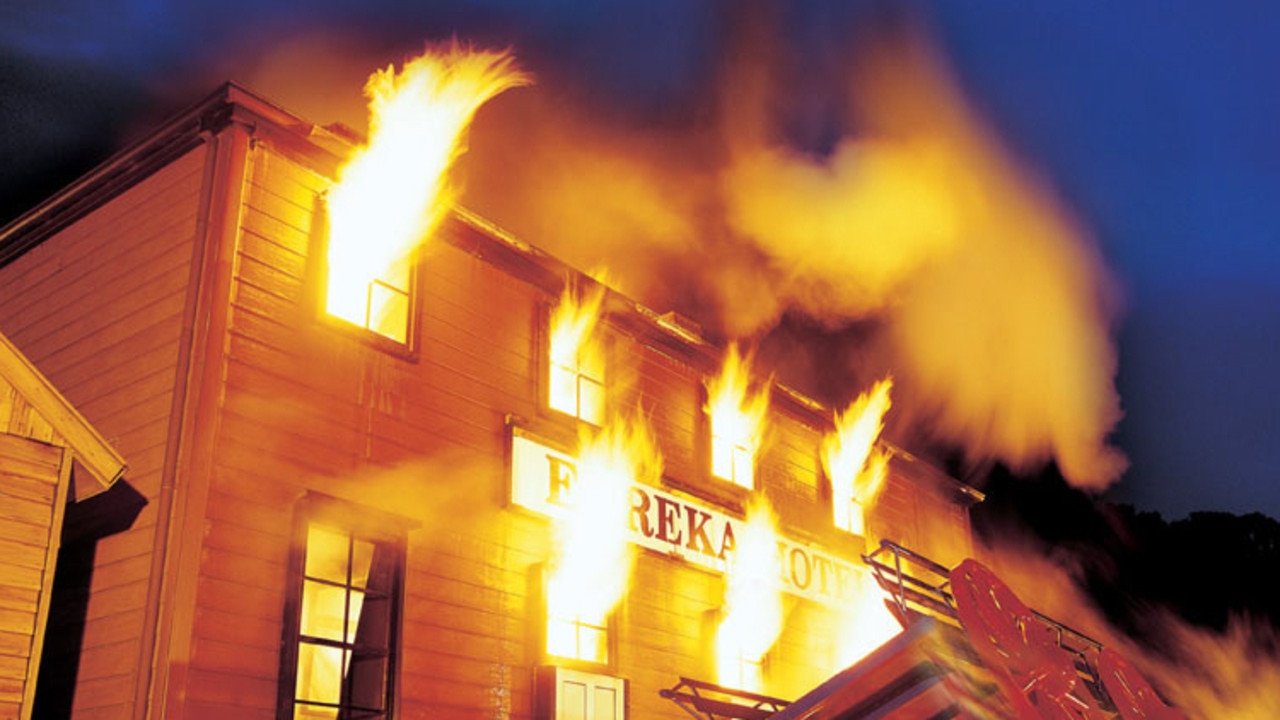
READING LEVEL: GREEN
The Gold Rush really was a rush. In just nine years from 1851, Victoria’s population increased from 76,000 to 540,000. That’s seven times as many people.
Such a fast increase in the population caused big problems. The government didn’t have enough money or people to work to build roads, hospitals, schools and all the other services towns and cities need to help them function* well.
To raise money and to try to slow the rush down, the NSW Governor Charles Fitzroy and Lieutenant governor Charles La Trobe of Victoria started a 30-shilling licence to mine that had to be paid every month.
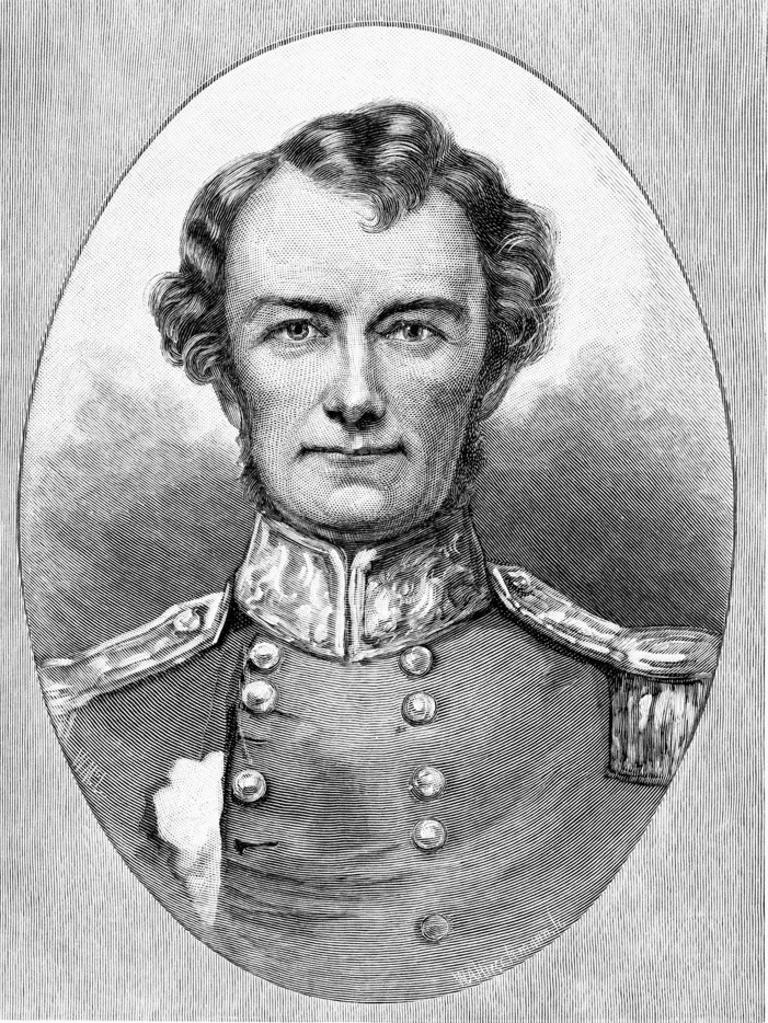
This was a lot of money if you weren’t lucky enough to find a lot of gold quickly and it didn’t give the miners any guarantee* that they could keep mining a particular piece of land. The miners believed the police and other officials were corrupt*. Police kept raiding the goldfields looking for miners to fine or put in jail if they didn’t have a licence. Miners were sure that some police were keeping the fines themselves, that they were accepting payments from people to leave them alone and that many of those arrested weren’t being given a fair trial.
By 1853, miners started to meet in big groups to protest about corruption, their lack of rights and expensive licences. They elected leaders who spoke to Governor La Trobe, but nothing changed. Many of the miners had come from countries where workers had to fight for their rights and were experienced in how to organise themselves for revolution*.
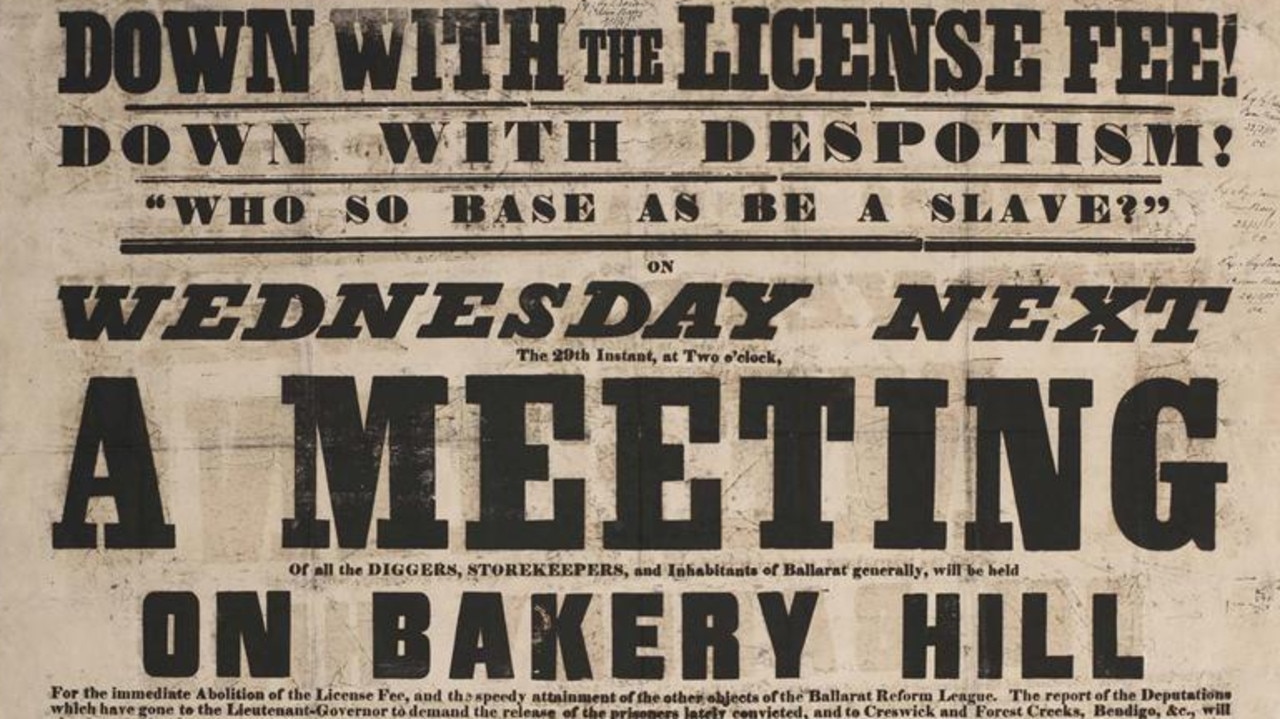
On October 6, 1854, Scottish miner James Scobie was killed in a fight at Ballarat’s Eureka Hotel. The manager of the hotel, JF Bentley, was accused of his murder. There was a trial, but Bentley was quickly found not guilty, a decision the miners didn’t agree with and that they believed supported their claims of corruption.
On October 17, 5000 men and women gathered to discuss Mr Scobie’s murder. They decided to appeal the decision to get the judge to change his mind about finding the manager of the hotel not guilty, but after most of the crowd left the meeting, a small group of miners set fire to the Eureka Hotel and then were arrested by police.
The scene had been set for one of the most famous battles in Australian history.
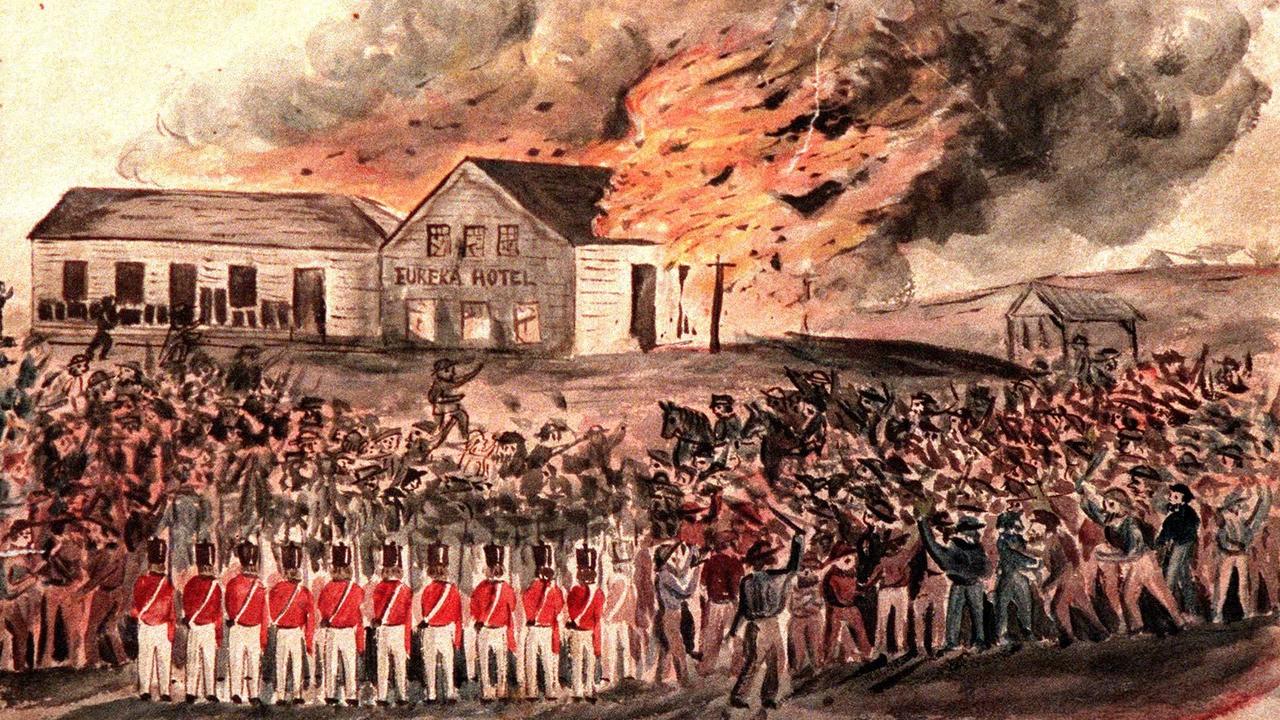
EXTRA READING
FOR ALL GOLD RUSH STORIES, click HERE
GLOSSARY
- function: work properly
- guarantee: promise
- corrupt: dishonest
- revolution: forcefully getting rid of people in power
LISTEN TO THIS STORY
25 CLASSROOM ACTIVITIES
For 25 classroom activities on this story and much more, go to kidsnews.com.au/goldrush to purchase the Gold Rush workbook for $20 inc GST.
SOURCES
- National Museum of Australia, nma.gov.au
- National Library of Australia, nla.gov.au
- State Library Victoria, slv.vic.gov.au
- State Library of NSW, sl.nsw.gov.au
- SBS, sbs.com.au/gold
- KidCyber, kidcyber.com.au/gold-rush-in-australia
- Growing up on the Australian Goldfields by Kimberley Webber, bit.ly/2nfbbqw
- Sovereign Hill, sovereignhill.com.au and sovereignhilledblog.com
